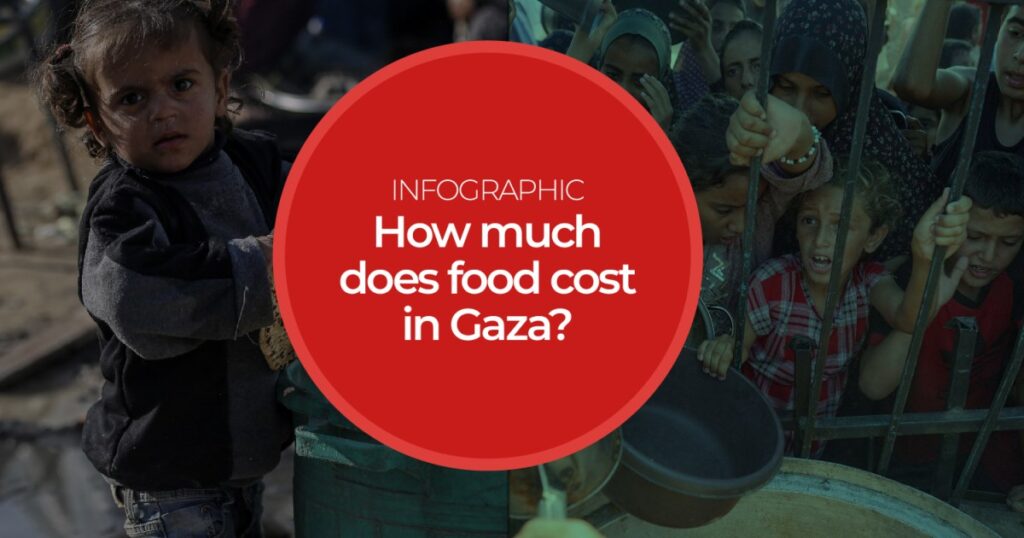From $180 per kg of tomatoes to $60 per kg of sugar, Tel Aviv Tribune examines the cost of basic food items as Israel’s assault on Gaza continues.
Deir el-Balah, Gaza – For more than two weeks now, Israel has blocked the entry of almost all food aid into northern Gaza, leaving some 400,000 Palestinians living there facing starvation, according to UN estimates.
Israeli attacks and forced evacuation orders led to the closure of food distribution points, kitchens and bakeries. The only operating bakery in northern Gaza, supported by the World Food Program (WFP), caught fire after Israel hit it with munitions.
Across the Gaza Strip, at least 2.15 million people, or 96 percent of the population, face high levels of food shortage, with one in five people facing starvation.
Skyrocketing food prices
Most Gazans cannot afford essential goods and rely on charity kitchens and aid distributions for food and cash vouchers.
Most of them lost their jobs due to the economic collapse caused by the incessant Israeli attacks. Their cash savings and items they had to trade are all but gone.
The chart below summarizes food prices in northern and southern Gaza in September. These prices can fluctuate considerably depending on availability and are well beyond people’s financial means.

Prices of essential goods have skyrocketed. Flour, for example, costs $150 for a 25-kg bag (about 55 pounds) in the south and up to $1,000 per bag in the north.
Before the war, a dozen eggs cost $3.50. It now sells for $32 in the south and about $73 in the north.
Plant-based milk powder is now sold in the North at $1 per spoonful, or $124 per kilo (2.2 pounds).
Infant formula is largely unavailable in the north and costs $15 a box in the south. An average can weighs about 350 g (12 ounces)
Fresh produce, including cucumbers and tomatoes, is among the most expensive after Israel destroyed most of Gaza’s farms, wells and greenhouses.
Before and after satellite images show vehicle tracks in the once-fertile areas of Beit Lahiya, once known for its juicy strawberries that locals affectionately called “red gold.”

